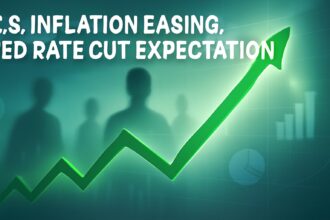Trump Tariff Refunds Could Surpass $1 Trillion Amid Supreme Court Challenge
The United States government faces the prospect of repaying up to $1 trillion collected from tariffs imposed during former President Donald Trump’s administration, according to Treasury Secretary Scott Bessent. This potential refund arises from ongoing legal challenges questioning the legality of the tariffs.
Legal Background and Financial Stakes
The tariffs, often referred to as “reciprocal tariffs,” were imposed under the International Emergency Economic Powers Act (IEEPA). However, two lower courts have ruled that Trump exceeded his authority in levying these broad import taxes on numerous trading partners, deeming them unlawful.
As of August 24, U.S. Customs and Border Protection had collected over $72 billion from these tariffs. Additional revenues anticipated through June next year place the total potential refund between $750 billion and $1 trillion, as outlined in a declaration filed by Bessent with the Supreme Court.
Supreme Court’s Role and Administration’s Appeal
The Trump administration has petitioned the Supreme Court for an expedited ruling to uphold the tariffs’ legality and avoid the financial and economic disruption that might follow if the tariffs are deemed unlawful. Solicitor General D. John Sauer emphasized the high stakes in the administration’s filing, warning that invalidating the tariffs could have “ruinous” economic consequences for the United States.
Bessent expressed confidence that the Supreme Court will reverse the lower court decisions but acknowledged that if refunds are mandated, the government will have to comply, describing the outcome as “terrible.” The Court has yet to announce when it will hear the case, though experts anticipate a decision by year-end given the expedited request.
Implications for Importers and the Refund Process
Should the Supreme Court order refunds, the process could be administratively burdensome. Trade experts advise importers to maintain detailed records and prepare for complex claim filings. Some industry insiders suggest that importers may need to submit refund claims themselves, potentially doubling the workload for customs brokers.
Additionally, reports indicate that some importers are negotiating to sell their potential refund claims to third-party firms at significantly reduced values, effectively betting on a Supreme Court reversal of the tariffs.
Context and Precedents
While tariff refunds are not unprecedented—the Biden administration previously authorized limited refunds on Section 301 tariffs for certain Chinese goods—the scale of potential repayments linked to the Trump tariffs is unprecedented.
The case underscores ongoing tensions over trade policy and executive authority, with significant implications for U.S. international trade relations and fiscal policy.
FinOracleAI — Market View
The possibility of a Supreme Court ruling requiring up to $1 trillion in tariff refunds introduces considerable uncertainty into U.S. trade and fiscal policy. Markets may react negatively due to potential disruptions in government revenue and increased administrative burdens on importers and brokers. The scale of refunds could also impact trade flows and corporate financial planning.
Key risks include the timing and outcome of the Supreme Court decision and the complexity of implementing refunds. Market participants should monitor legal developments closely and prepare for operational challenges linked to potential refund claims.
Impact: negative













